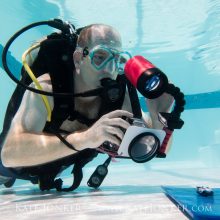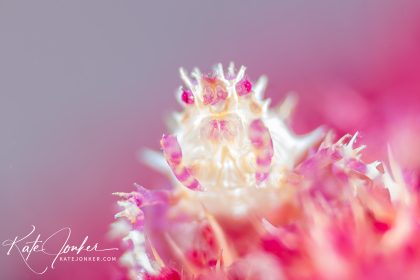Always wanted to learn how to take underwater photos so that you can share the beauty of the ocean with your friends and family?
Perhaps you’ve given it a go and feel you need some advice and guidance?
Here are a few tips and tricks I have learned through my own (and other’s) experiences…
- Put your camera into its housing the night before you go diving, in a quiet place where you can work systematically and won’t be disturbed. It is important to check the o-ring carefully for dust, hairs and other particles which will prevent it from doing its job properly (protecting your valuable camera!).
- Check that all buttons work and take a test shot before you get on the boat or go down to the entry point.
- Try not to take the photo from above – shoot up or across but not down.
- Shoot the subject from the front or from the side.
- Fish faces are great if you take them at 45%, that way you get both eyes in the picture – it is the eyes that draw the viewer into the picture.
- Get to know your subject – especially nudibranchs – try to get them from the front and not from behind (eliminate those “Butt shots”).
- Get close and be patient (have a “conversation” with your subject) – fill as much of the frame with your subject as possible: get close, and then get closer!
- Buoyancy, buoyancy, buoyancy! Don’t kick the reef, dislodge marine life from rocks or disturb the natural environment. No marine life should be destroyed or tampered with to get the perfect shot! If you have to hold on to something, try to use one finger or a finger and thumb to hold on to a piece of reef where there is no growth.
- Keep an eye on your air and dive time – always. Being safe underwater is far more important than pushing the limits for a good shot.
Don’t give up – practice makes perfect and the more shots you take, the sooner you will discover what settings work best for your camera. With experience and the right guidance, you actually get the hang of it quite quickly.
To learn how to take really great photos, sign up for one of my Digital underwater photography Courses. You don’t need your own camera to do the course as we have compact digital underwater cameras you can use. This is a fantastic course for winter as you can do the practical in an indoor, heated swimming pool or try it all out in the ocean.













